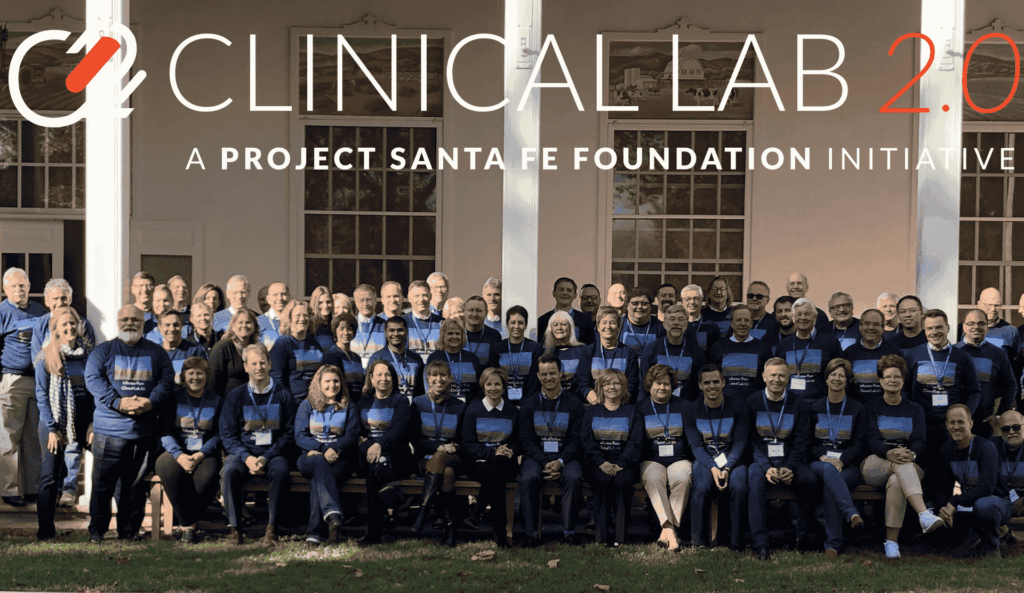“The first wealth is health.” — Ralph Waldo Emerson
In the world of healthcare, collaboration is key. The success of any significant movement, such as Clinical Lab 2.0, relies on multiple parties coming together to share expertise, resources, and knowledge. One organization that exemplifies this type of collaboration is the Project Santa Fe Foundation (PSFF). By promoting teamwork between laboratory professionals, healthcare providers, and policymakers, PSFF plays a crucial role in advancing the goals of Clinical Lab 2.0. This movement is centered around improving healthcare delivery through the use of innovative data analytics, risk stratification, and early detection. At the heart of it, collaboration and policy development are what turn ideas into real-world impacts.
Fostering Collaboration Across Disciplines
One of the primary objectives of PSFF is to foster collaboration between laboratory professionals, healthcare providers, and policymakers. The idea is to bring together experts from diverse fields to work on common goals—improving patient care and transforming the healthcare system. In healthcare, it’s often easy to think of laboratory diagnostics, medical treatments, and policymaking as separate entities. However, PSFF recognizes that these areas must work together in order to create lasting change.
Laboratory professionals provide essential data that can influence decisions in patient care. This data, such as blood tests or biopsy results, can help healthcare providers determine the most effective course of treatment for a patient. By collaborating with providers, laboratories ensure that results are interpreted in the correct clinical context. This collaboration also ensures laboratory data is used to create meaningful clinical insights around disease identification and progression, risk identification and stratification, and gaps in care.
Meanwhile, policymakers play a critical role in setting the regulations and guidelines that govern healthcare delivery. By partnering with laboratory professionals and healthcare providers, policymakers can ensure that the latest scientific advancements in diagnostics and treatment are implemented effectively within the framework of healthcare systems. Additionally, this collaboration helps to ensure that policies are informed by real-world data and evidence.
Policy Development to Support Clinical Lab 2.0 Goals
Part of the Clinical Lab 2.0 movement is about developing and implementing policies that can support disease prevention, wellness, and population health. To ensure these goals are achieved, PSFF works closely with policymakers to shape legislation and regulations that will support the growth of the movement.
One of the most important aspects of policy development in Clinical Lab 2.0 is the focus on value-based healthcare. Value-based care emphasizes the quality of care patients receive and health outcomes rather than the volume of services provided. This approach is closely tied to the goals of Clinical Lab 2.0, which aims to shift the focus from reactive to proactive care through early detection, risk stratification, and preventative measures. By collaborating with policymakers, PSFF helps to ensure that laws and regulations support these goals and make value-based care the standard in healthcare delivery.
In many cases, healthcare systems have been designed around traditional models of care that focus primarily on treating illnesses after they occur. In contrast, Clinical Lab 2.0 is focused on prevention and early detection. This shift requires substantial changes to existing policies and systems. PSFF, through its collaboration with policymakers, is working to ensure that these changes are made in a way that benefits both patients and healthcare providers.
Industry Partnerships to Drive Change
Along with fostering collaboration within the healthcare system, PSFF also works to build partnerships with industry leaders and stakeholders. The healthcare industry, like any other, is constantly evolving, and keeping up with the latest trends and technologies is essential to improving patient outcomes. By working with leaders in laboratory diagnostics, technology companies, and other industry players, PSFF helps to ensure that the Clinical Lab 2.0 movement stays at the forefront of innovation.
These industry partnerships are not just about introducing new technologies that focus on identifying risk and developing clinical insights from longitudinal laboratory data; they are about ensuring that the technologies introduced are accessible, practical, and scalable. It’s one thing to develop a new diagnostic tool or data methodology, but it’s another to ensure that it can be widely adopted by healthcare providers and used to support value-based care. PSFF’s role in facilitating these partnerships helps ensure that new innovations are adopted in a way that maximizes their impact and supports improved patient care at deceased costs.
Looking Ahead: The Importance of Continued Collaboration
As the Clinical Lab 2.0 movement continues to grow and evolve, collaboration will remain a cornerstone of its success. The role of the PSFF in fostering these relationships is critical, as it ensures that laboratory professionals, healthcare providers, and policymakers remain aligned in their efforts to improve patient outcomes and support value-based care. By working together, these diverse groups can continue to push the boundaries of what is possible in healthcare, making it more proactive, preventive, and patient-centered.
At the end of the day, healthcare is not a one-size-fits-all system. Patients have different needs, and the most effective care comes from a system that can adapt and respond to those needs in a timely and efficient manner. The collaboration fostered by the PSFF is a key part of this adaptability. Through partnerships and policy development, the Clinical Lab 2.0 movement is working toward a healthcare system that not only treats illness but also prevents it.
The ongoing development of these partnerships and policies will be crucial in ensuring that the Clinical Lab 2.0 movement continues to have a meaningful impact on healthcare. By bringing together professionals from all aspects of healthcare and ensuring they are aligned in their goals, PSFF is playing a vital role in the transformation of healthcare delivery for years to come.

